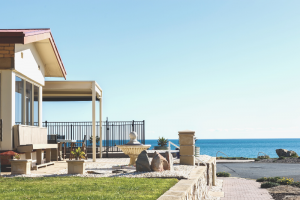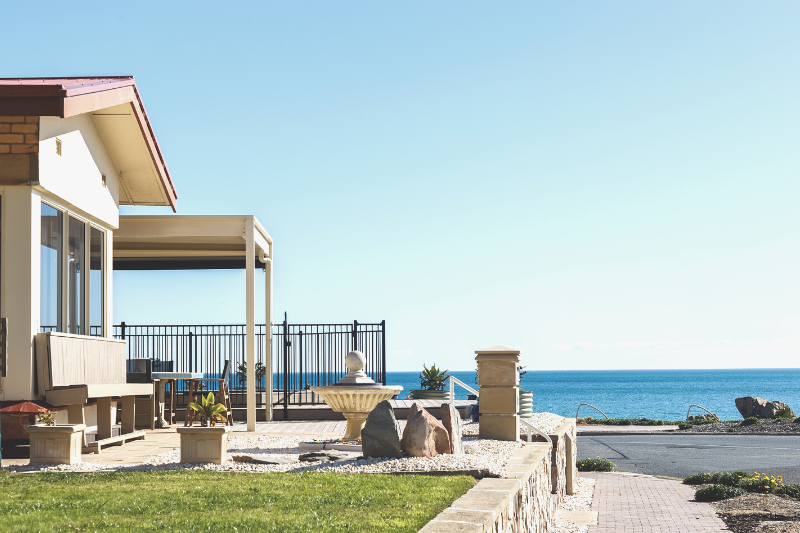Owning a vacation home in North Carolina is a dream for many, offering a personal…
Owning a Vacation Home: A Smart Investment

Owning a Vacation Home: A Smart Investment in Lifestyle and Future
Purchasing a vacation home combines the allure of a getaway retreat with the practicality of a long-term financial investment. For many, owning a vacation home is more than a luxury—it’s an opportunity to create lifelong memories, diversify their investment portfolio, and even generate passive income through rentals.
Whether you’re inspired by TV shows like Beachfront Bargain Hunt or driven by the dream of a personal escape, this guide will help you weigh the benefits, challenges, and practical considerations of vacation home ownership. Let’s dive into what makes vacation homes both a rewarding lifestyle choice and a solid financial strategy.
- Building Lifelong Memories
A vacation home isn’t just a piece of real estate—it’s a gateway to quality family time and cherished experiences. Imagine summer barbecues by the beach, cozy winter nights by the fireplace, or fun-filled days of skiing and tubing. Vacation homes provide an opportunity to unplug from the world and connect with loved ones in a way that’s increasingly rare in today’s fast-paced, tech-driven society.
For many families, these homes become the setting for traditions that are passed down through generations. As your family grows, having a dedicated retreat where everyone can gather fosters deeper connections and shared memories.
What to Consider:
- Space for Growth: If you plan to keep the home for decades, evaluate whether it can accommodate a growing family. Does it have enough bedrooms and bathrooms for everyone? Can it handle large gatherings?
- Location and Accessibility: Is the home conveniently located for all family members? Properties within a few hours’ drive from your primary residence are often more frequently used than those requiring flights.
- Amenities: Look for features that will enhance your family’s enjoyment. A lakefront property with boating access, a mountain cabin near hiking trails, or a beachfront home with a pool can make your vacation home even more special.
- Using Rental Income to Offset Costs
One of the biggest advantages of vacation home ownership is the potential to generate income by renting out the property when you’re not using it. This can help offset your mortgage payments, property taxes, and maintenance expenses. However, renting out your home comes with responsibilities and additional costs.
Key Considerations for Renting:
- Property Management Services
If managing bookings and maintenance isn’t your cup of tea, hiring a property management company can save you time and hassle. They handle everything from marketing your property to coordinating guest check-ins and addressing maintenance issues. However, this service typically costs 20-30% of your rental income, so it’s important to factor this into your calculations. - Higher Insurance Premiums
Homes that are unoccupied for extended periods or rented to strangers often require specialized homeowners’ insurance. Expect premiums to be higher than those for your primary residence. - Seasonal Demand
Vacation rental income can vary significantly based on location and seasonality. Homes in beach towns might see high demand in the summer but low occupancy in the winter. Research your area to understand peak rental seasons and set realistic expectations for income. - Local Regulations and Taxes
Many cities and counties have regulations regarding short-term rentals, including licensing, zoning restrictions, and additional taxes. Ensure you’re compliant with all local laws before listing your property on platforms like Airbnb or VRBO. - Operating Costs and Upkeep
From utilities to routine maintenance, owning a vacation rental comes with recurring expenses. If the home was previously used as a rental, request financial records from the seller to estimate these costs accurately.
Helpful Resource: Explore our blog on HELOCs to see how home equity can help you finance upgrades or cover operating costs for your vacation home.
- Enjoying Tax Benefits
Vacation homes may also offer tax advantages, particularly if you use them as rental properties. For example, you might be able to deduct mortgage interest, property taxes, certain maintenance expenses, and even depreciation. However, tax rules can be complex and vary depending on how often you use the property versus how often it’s rented.
General Tax Guidelines:
- Personal Use vs. Rental Use: If you rent the home for fewer than 14 days per year, the income is typically tax-free. If you exceed this limit, you’ll need to report the income, but you can also deduct related expenses.
- Depreciation: For rental properties, you may be able to depreciate the value of the home (excluding the land) over time, reducing your taxable income.
Tip: Consult with a tax professional to maximize your savings and ensure compliance with IRS regulations.
- Investing in Long-Term Financial Growth
Beyond the lifestyle benefits, vacation homes can be a smart financial investment. As property values rise, your second home’s equity can grow significantly over time, providing a valuable asset for your future.
Research Before You Buy:
- Local Real Estate Market: Understand market trends in the area where you’re purchasing. Are property values increasing? Is the area experiencing growth in tourism or infrastructure development?
- Comparable Properties: Look at recent sales data for similar properties to gauge whether the home you’re considering is priced fairly.
- Future Plans: Some buyers purchase vacation homes intending to eventually retire there. If this is your plan, consider factors like healthcare access, cost of living, and community amenities.
- Tips for Financing Your Vacation Home
Financing a second home is slightly different from buying a primary residence. Lenders often have stricter requirements, such as higher down payments and stronger credit scores. Here’s how to prepare:
- Improve Your Credit: A high credit score can help you qualify for lower interest rates.
- Save for a Larger Down Payment: Expect to put down at least 10-20%, depending on the loan type.
- Calculate All Costs: Don’t forget to include property taxes, insurance, and maintenance in your budget.
- Work with Specialists: Choose a mortgage broker experienced in second-home financing to ensure a smooth process.
At Certified Home Loans, we guide you through every step of the journey, from pre-approval to closing. Contact us today to explore your financing options.
Final Thoughts
Owning a vacation home offers unparalleled opportunities for relaxation, family bonding, and financial growth. Whether you use it exclusively as a personal retreat or rent it out to generate income, a vacation property can be a worthwhile investment when approached thoughtfully.
By doing your homework, working with experienced professionals, and understanding the financial implications, you can make a decision that benefits your family today and sets you up for a brighter future tomorrow.
Explore Your Options: Ready to take the first step? Call us today at 919-510-1108 and visit Certified Home Loans to learn more about second-home financing and make your dream a reality.



